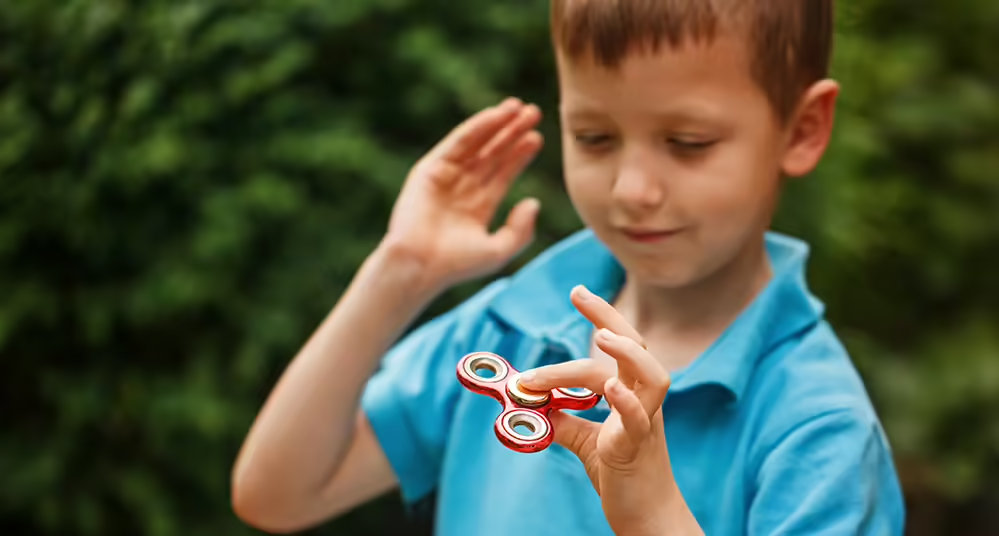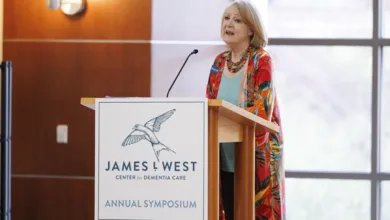Helpful Autism Guide for Grandparents

As grandparents, your love and support mean the world to your grandchildren. If you have an autistic grandchild, you may feel unsure about how to connect in the best way, especially if you don’t see them often. As a mom to a child on the spectrum, I’d like to offer a few thoughts and suggestions that may help you better understand your grandchild and navigate interaction with them this holiday season.
Every child is unique, and every child on the spectrum will have different strengths, traits, and triggers; however, most kids on the autistic spectrum thrive in routine and structure. More than any other time of year, the holidays offer many opportunities to disrupt their routine and a sense of security and order.

Some or all of the magic we love at holiday time can seem daunting or simply overstimulating to your autistic grandchild: crowds and unfamiliar people, visiting house guests and pets, unfamiliar foods and scents, and activities that involve a lot of sensory stimulation. Even the unpredictability of opening a surprise gift can prove challenging. Some or all of these things could trigger an episode of being overwhelmed if not avoided or taken in smaller doses.
The best thing you can do as the grandparent of an autistic child is to have an open conversation with your adult son or daughter before a holiday gathering or visit. It’s essential to approach a conversation with curiosity and a desire to understand without judgment. Equally important is a willingness to implement the requests, suggestions, and strategies offered. Ask your child what makes your grandchild happiest and most comfortable. Ask how they prefer to communicate, play, and spend time together. Also, ask if they have a special diet or protocol or are selective eaters.
Your grandchild may not tolerate or enjoy the foods, traditions, and activities you did with your own children (or with other neurotypical children) at holiday time—and that’s okay! Likewise, what may seem like entitled behavior or poor parenting is often a presentation of their disability and not an intentional choice. Being able to discuss these things in advance goes a long way.

As special needs parents, we want to know that our children are seen, respected, and celebrated for their strengths. Parents notice and appreciate when family and friends extend curiosity, effort, and grace. One of the most humanizing and compassionate things you can do is seek to understand and be willing to meet these sweet children in their comfort zones.
Here are five suggestions to help guide you in understanding the needs of your autistic grandchild:
- Ensure approved foods and beverages are part of holiday meals, even if not traditionally served.
- Consider not wrapping gifts or stretching out gift opening. During the holiday season, we open one gift a day, preventing overstimulation, providing a great reward incentive, and allowing us time to process, read, or play with only one gift.
- Be mindful that your grandchild may not be interested in gifts or may only interact briefly with a gift, and that’s okay. Experiences can also be gifts—opening a coupon for horseback riding or zoo tickets may be more suitable than a traditional toy (and more fun for everyone!).
- Ensure you have a quiet place where your grandchild can decompress or go with a parent to de-escalate or calm down if overstimulated or experiencing a clinical meltdown (an uncontrolled response to sensory overload and different than a behavior-based tantrum).
- Be accommodating to any gear or behaviors that help your grandchild regulate, such as fidget toys, chew tubes, headphones, jumping, pacing, or vocal play. Asking them to stop or remove a needed device for sensory regulation with the expectation of stillness or silence is not appropriate, nor should the inability to stop or listen result in disciplinary action.






